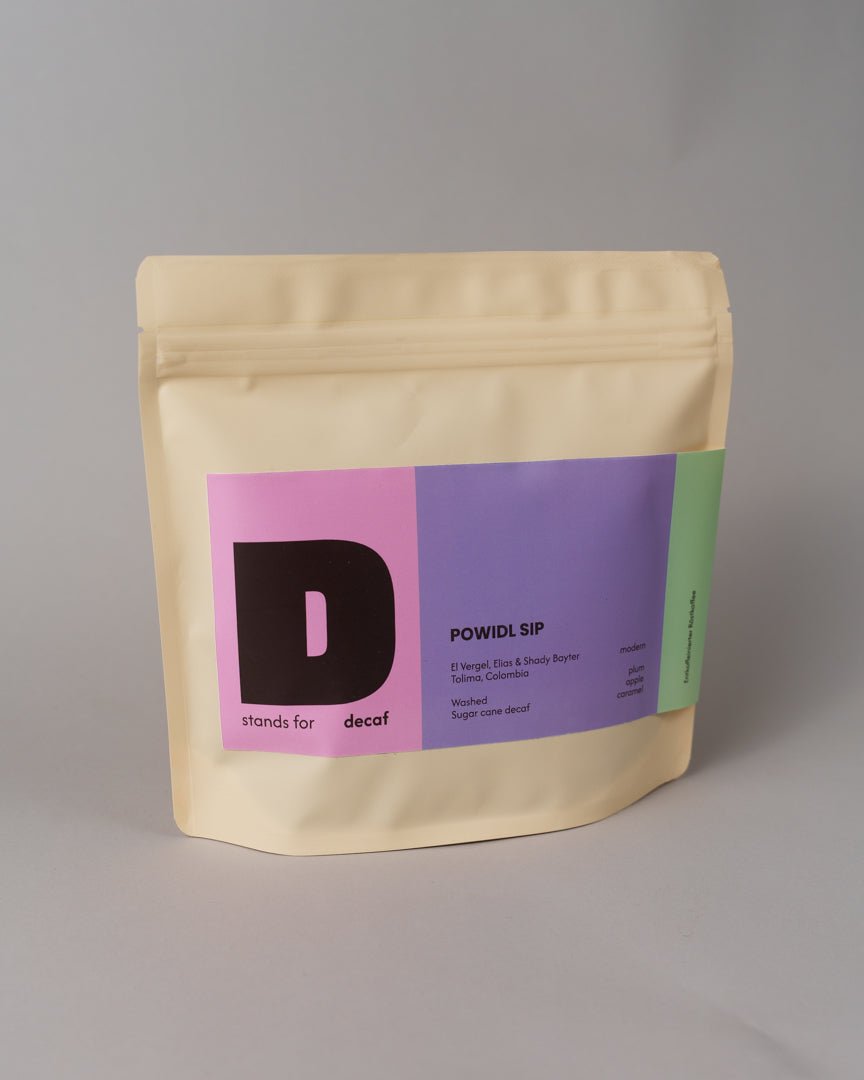POWIDL SIP | COLOMBIA | washed (decaf)
POWIDL SIP | COLOMBIA | washed (decaf)
Couldn't load pickup availability
- Plum, apple and caramel
PRODUCTION Martha, Elias & Shady Bayter
REGION Tolima
FARM/COOPERATIVE El Vergel
PROCESS Washed - Sugar Cane Decafination
VARIETY Red & Yellow Caturra
ALTITUDE 1,450 masl
IMPORT Forest Coffee
About the coffee
About the coffee
El Vergel Estate, run by the Bayter family, is a showcase for innovation and quality in Colombian coffee production. Originally specializing in avocados, a price collapse in 2006 led to the bold decision to cultivate coffee. What began as an experiment with Catimore and Caturra quickly developed into a center for specialty coffee.
Starting in 2016, with the help of Miguel Jimenez, varieties such as Geisha, Java, and Red Bourbon were planted. In 2018, El Vergel went a step further and introduced natural fermentation processes. One of the most notable examples is the groundbreaking koji fermentation process, which has revolutionized the way green coffee is processed.
Today, El Vergel is an innovation laboratory with over 28 varieties and a vision that combines technology and tradition. The Bayter family conducts intensive research into fermentation processes and sets new standards in coffee production.
Sustainability and Community
In 2014 and 2015, El Vergel was certified as a "Rainforest" farm by the Federación Nacional de Cafeteros (National Coffee Federation)—a testament to its commitment to environmental protection. But the focus isn't just on the environment: Together with Martha and her sons Elias and Shady, the farm is committed to strengthening its community. With passion and technology, they not only create exceptional coffee but also new prospects for the local people.
Sugar Cane Process
The Sugar Cane process uses ethyl acetate (EA), a natural solvent derived from sugar cane through fermentation—hence its name. EA is naturally present in numerous fruits and other foods.
First, the green coffee beans are steamed to open their pores.
They are then placed in a solution of water and ethyl acetate, which binds and removes the caffeine without affecting the flavors. This process is repeated several times until 99.9% of the caffeine is removed.
Finally, the beans are steamed again to remove any remaining traces of ethyl acetate and then dried. The remaining amount in the beans is several times lower than in a banana.
The Sugar Cane process preserves the original aromas and flavor of the coffee, often gaining sweetness, and has no off-flavors from the decaffeination process.
This coffee was decaffeinated in the country of origin, keeping a larger portion of the value chain within the country. Short transport routes reduce the carbon footprint and guarantee the freshness of the beans.
Share


